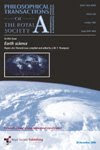The electronics we know in our computers today is, as the name suggests, based on the transfer of information with the help of electrons. Using electrons has allowed us to shrink the size of computer circuits without losing efficacy. At the same time, communication with the help of electrons represents a rather slow means of transmission. To alleviate this problem, light can be used instead of electrons. This is the basis of so-called photonic components. While the transfer speed in photonics is extremely high, the size of the components cannot be shrunk to the same level as ‘ordinary’ electronics.
For a number of years, so-called plasmonic components have proven to be a possible way around the dilemma of electronics and photonics. By combining photonics and electronics, scientists have shown that information can be transferred with the help of so-called plasmons. Plasmons are surface waves, like waves in the ocean, but here consisting of electrons, which can spread at extremely high speeds in metals.
The findings now being presented by the Swedish-American research team show that difficulties arise when the size of such components is reduced to the nanometer level.
All may pages
CSE - Customised Search Engine - Conversations on Innovations

Custom Search
Where my visitors live
InnoCentive: Challenges-All Categories
IdeaConnection :: Idea Contests
EUROPA - Research and Innovation - What's New
EUROPA - Research and Innovation: What's New in Innovation
Monday, October 27, 2008
Link: Limits to Nanoelectronics – Theoretical and Physical Limits-Plasmonics – Economic analogies of limits to growth from the bulk metals industry
Publié par Unknown à 10:46 pm
Libellés : Limits on Nanoelectronics, Plasmon based components limitations
Subscribe to:
Post Comments (Atom)






2 commentaires:
Can't they just use that ray demonstrated in the documentary, "Honey I Shrunk the Kids"?
David,
I have not seen the film but I can see an easier, less dangerous and fully operational way to see things your way.
Take a standard telescope and look through the large end. I guess the film makers filmed along such lines -I have just seen a golden oldie "James Bond" 007 movie.
Now you have a nice site at PlanetThoughts. I'll remember to use the telescope the right way round.
I'm surprised you did not comment on one or two of my other "green" topics.
Cheers and thanks for stopping by.
A concerned scientist
Post a Comment